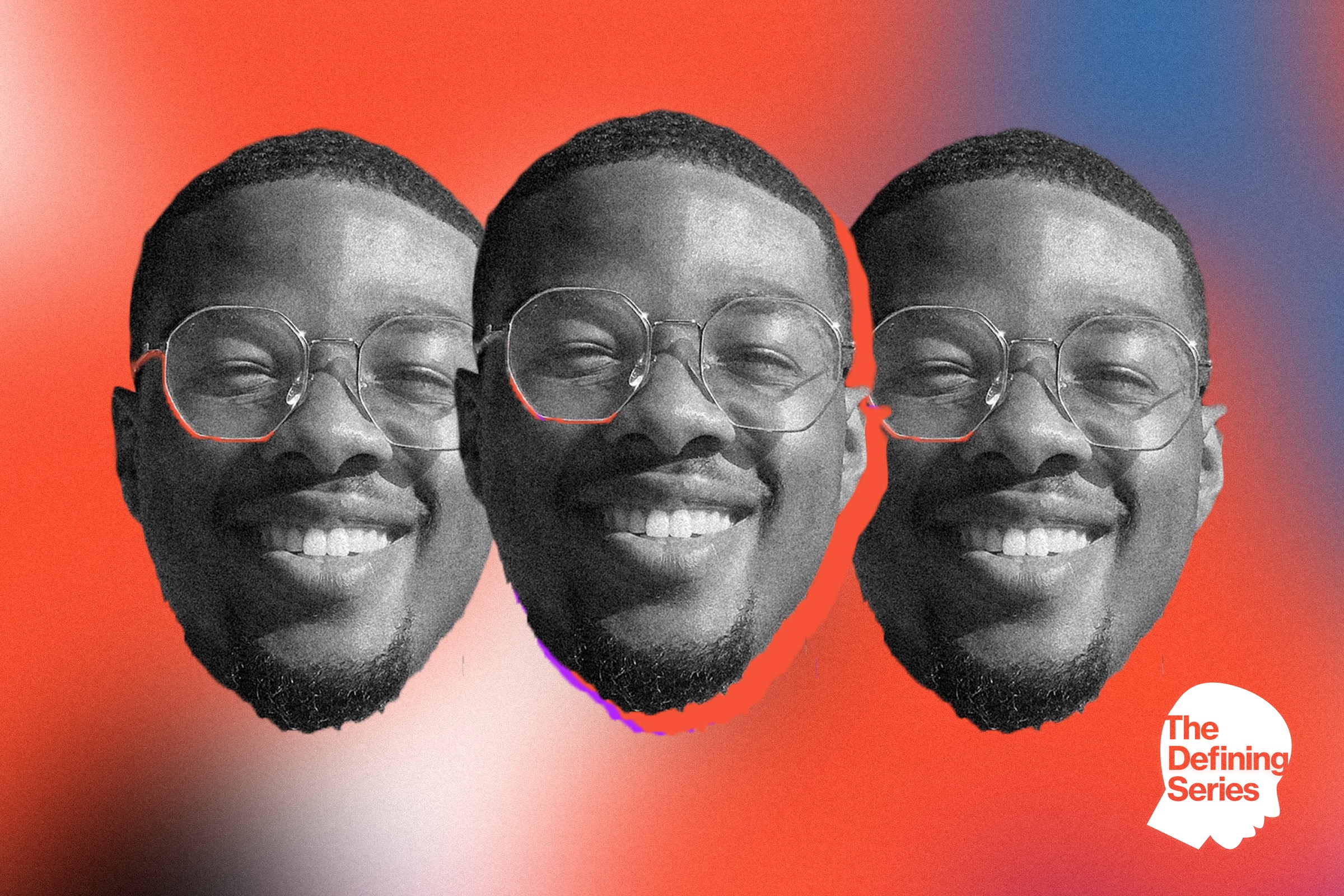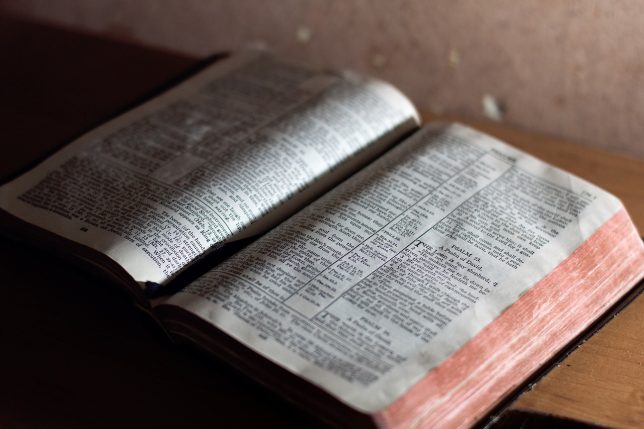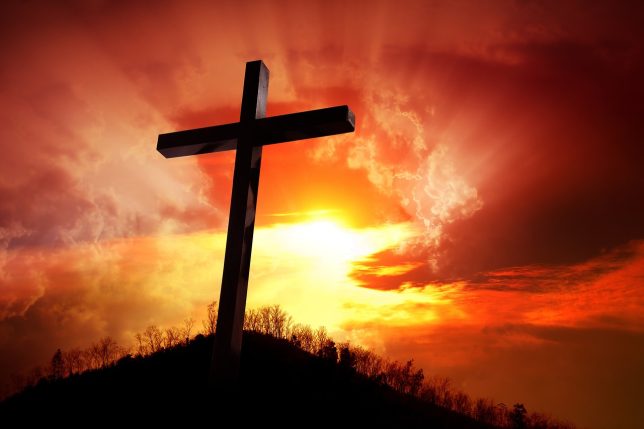The Defining Series was launched to amplify the experiences and testimonies of members of our community. In honor of Un-Associated’s 5th Anniversary, we have brought back the community initiative to continue to share stories, triumphs, and challenges as a way to illuminate the journeys of our fellow brothers and sisters in Christ. We have more in common than we realize, especially as young believers in Christ, and The Defining Series serves as a vehicle to connect us through the common thread of God’s presence in our lives and the myriad of ways in which He makes Himself known to us.
To begin our relaunch, Editor-in-Chief, Danielle Clayton sat down with Stacy Aneke, a native of Ontario, California who is un-associated with unintentionality.
Stacy Aneke: My name is Stacy Ikechuku Aneke Jr. I am a Nigerian American, male, 24, from Southern California.
Danielle Clayton: What are you on associated with?
S: I’m unassociated with unintentionality.
D: Can I ask you kind of why unintentionality of all the words that you could choose? What has been your experience with it and how do we get to a place of being unassociated with it?
S: I think just throughout my life, I’ve had an understanding that there are times when I can really delay what God has for me, especially in relationship to my spiritual life. Being able to truly build that relationship with God. It’s not just going to be like a routine. It’s not just going to be like autopilot so, intentionality is definitely integral in that relationship.
D: Do you remember a seminal moment when you realized you weren’t being intentional or was there a kind of an active moment of, I need to turn this around? Or a moment where you kind of realized this is, I am better than this, and I can do better than this?
S: I think that the first specific moment wasn’t me coming to the faith because I grew up in a Christian home but more actively deciding. I believe it was ninth grade. It was during track season and I was going to accept Jesus as my Lord and Savior. We watched a movie Left Behind about the Rapture and I was like, I do not want that for myself and so, that was the moment where I decided to take my faith a lot more seriously and stop falling asleep in church. I would generally stay up watching shows with my brothers on Saturday night and be tired in church the next day. But I started taking notes and planning to read my Bible. I was able to start, I got a little calendar from a book that one of my mentors. He wasn’t exactly my teacher, but Mr. Mileski gave me a book with the calendar to read the Bible in the year, and I was able to do that. To this day, I still take notes in church. I got a little church note-taking notebook. So, I would say that that was the start of my first change within my relationship with God and really being intentional in my faith.
D: So, when you started to live more intentionally, did you see a shift in the relationships you had with others? Was that affecting your relationship with the people around you?
Stacy: I don’t necessarily know if it was a major shift in my relationships just because I feel like I generally just try and treat people well. I was raised and I grew up noticing the people in the crowd, so if somebody’s quieter, I might not necessarily try to bring attention to them, but I’ll ask them how they feel and to try to invite them into any type of conversation.
I think actions-wise, it was affected for sure. In terms of one example and I’m not saying this to make myself look good, but I say this story because there was a morning back in high school when I had read the Bible, and I was walking into the school, and on the floor was some money. It wasn’t anything crazy but I think it was a decent amount of money and I was like, okay let me just bring it back to the office. There were no identifiers for it, so I didn’t know whose it was or if somebody was going to come back and ask the office if somebody had returned their money. They probably just thought it was taken, but I genuinely do feel like if I did not read the Bible that day I easily could have just pocketed it and kept it pushing. They ended up blessing me with a little scholarship, but I feel like the influence on my character throughout the day was evident through how I was interacting with the Lord at the beginning of the day.
D: I’m curious as to how you have devotion. Because I know some people have a devotional that has the days ordered for them. Or do you just open the Bible? What does it look like for you?
S: I’ve been reading about the same Bible plan for since high school that story I told you about. So I will read the Bible and I pray.
Then I’ll pray and then I’ll journal. Journaling can also be prayer journaling. A lot of times it does turn into just asking the Lord for help, thanking Him, and stuff like that. However, the three main sections for the prayer journal are based on a prayer journal that my friend got me for my birthday. Aside from the quotes, the first section is what I’m praying for today. Next is a section for gratitude and then the last one’s a really small space and it’s today’s act of kindness.
I will change this scripture, but just basically what I’ve been hearing either in church or through my own readings, so, my most recent one is Romans 13:14, “making no provisions for the flesh, but put on the Lord Jesus Christ and make no provisions for the flesh to gratify its desires.”
D: How does that particular Scripture help you?
S: I think that one in my last one kind of recontextualizes what I need to do. Some people feel like they gotta learn the longest versus ever. But I think the last one that I did was James 4:7-8, “Resist the devil and he will flee from you draw near to God and he will draw near to you.” And so, the original one that I did was just driving here to God. He will draw near to you, I believe. Because I think even like trying to be a mental health professional, I can, at times, downplay the need to bring things to God. Also, the necessity of waiting to hear what God has to say about it and just bringing God my problems even to vent because I hear people do that but I’m not good at that. That’s not necessarily my specialty. So it’s something that I struggle with.
D: So how would you encourage or advise a person that is in a situation like you were aware that’s desiring to be more intentional but isn’t quite sure how to turn the tide on that?
S: I would say it’s probably gonna be different for everyone, and so it’s not necessarily a one-size-fits-all, but it’s more about spending that time. Remembering that it’s not a routine, remembering that it doesn’t have to be.
It’s not just about praying in the morning and at night. You can have a conversation with God throughout the day. If you’re struggling with something, it’s just building up that relationship. Just think about how you are with your best friend. If something happens in your life, you go to your best friend. I think intentionality with God, especially if you don’t have that type of relationship where you just like coming to the Lord, through our random times in the day, is important. It’s very important to gauge what that looks like for you and be able to build up that treasure in heaven. More importantly, build up that relationship with God so you don’t need those other crutches. You have one solid consistent, never-changing place to go and He’ll be able to give you discernment.
D: I really love everything that you just said. What would your present self, who is intentional about being intentional, say to yourself in the past?
S: I think the main thing I would say, is to work on listening. I still have trouble listening to, what, I believe God is saying for my life. Take time for yourself as well. Spending time with people is dandy and all that, but the real power is in being able to spend that time with yourself being comfortable with yourself, accepting yourself, all your flaws, and all that, knowing that God accepts all your flaws, but still working towards something greater and being a better version of who you are.
When you’re pleasing the people, you’re not pleasing God. That starts with accepting who you are and then being able to sit in that while talking to God.
D: How’s that liberation shaped you a little bit more today? Do you feel closer to Him?
S: So I’m gonna come clean and be completely honest. I’m a work in progress, working on it by God’s grace. I’m already delivered in the future from unintentionality. We live in an age of information, it’s very easy to be overwhelmed, so being able to mitigate that by spending time, where you can hope as opposed to where you just find negativity but no solutions, it’s better to place your faith in One who is able to be the ultimate truth, the ultimate life.
D: Do you have any lasting, thoughts comments, or anything that you would like to say?
One of the things that I realized is, it’s easy in California to get mad at the drivers. I’m trying to be more intentional when somebody’s driving crazy. What I started doing was just quelling the anger internally and praying for that person. It’s a lot harder to be angry at somebody when you’re praying for them to get to their place safely and genuinely trying to mean it.
One last message: It’s okay to get information and to know what’s going on in the world, but it’s important to find balance. You might need to find unbalance but the unbalanced scale has to be tipped in God’s favor.







